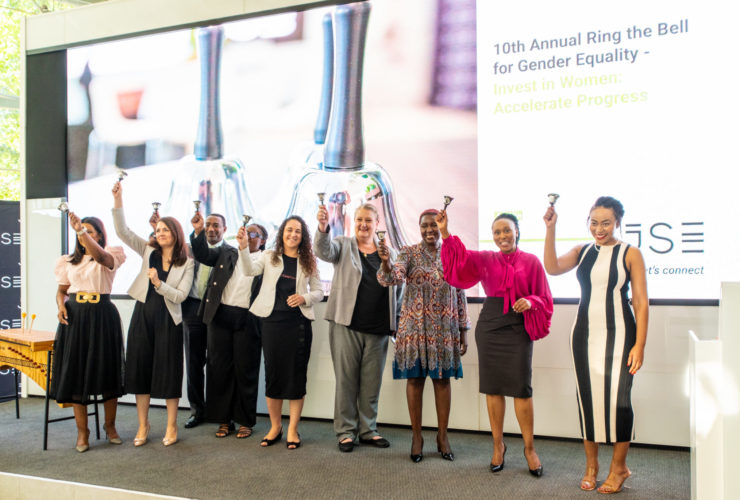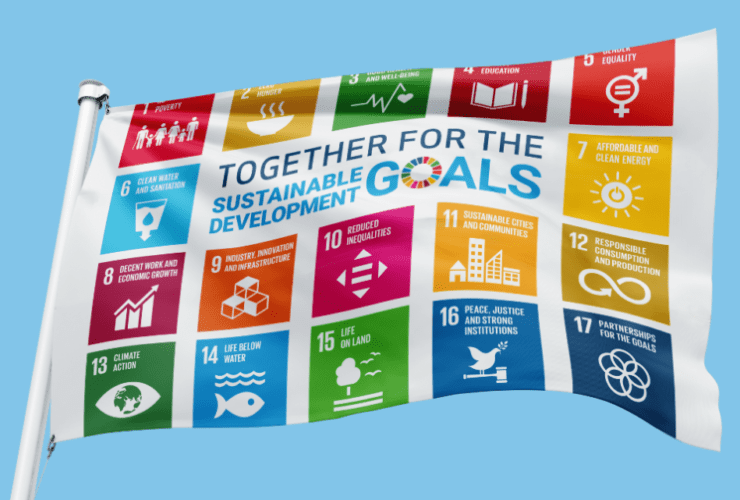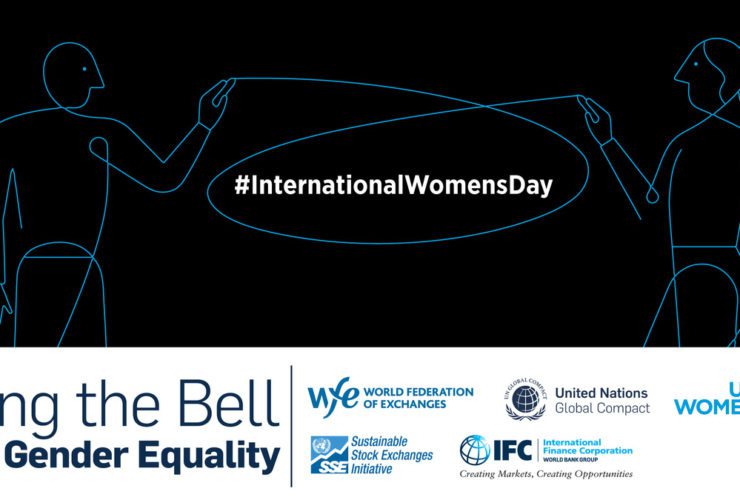Business leaders taking action on women empowerment and gender equality
To mark the National women’s month, the UN Women South Africa Multi-Country Office (SAMCO), Global Compact Network South Africa (GCNSA) and Commission for Gender Equality are co-organizing the Women Empowerment Principles (WEPs) event aimed at advancing the crucial role of the private sector in promoting gender equality and empowerment of women. The event is an opportunity to recognize and inspire new corporate leadership in advancing gender equality and empowerment of women. It will bring attention to the critical role the private sector can and must play in advancing gender equality to achieve the Sustainable Development Goals (SDGs). In addition. it will raise awareness for more companies to endorse and adopt the Women Empowerment Principles (WEPs) which guide companies to empower women in the workplace, marketplace and community.
Breakfast Event:
Business Leaders Taking Action on Women Empowerment & Gender Equality
- Date: 27 August 2018
- Time: 07:00 for 07:30- 10:30
- Venue: Johannesburg
Programme:
Programme Director: Anne Githuku-Shongwe, Executive Director, UN Women SAMCO
| 7:30 – 07:35 | Welcome Remarks & Overview Dr Achieng Ojwang, Executive Director, Global Compact Network SA |
| 07:35 – 07:45 | Remarks from the UN and Introduction of Guest of Honour Nardos Bekele-Thomas, UN Resident Coordinator, SA |
| 07:45 – 08:00 | Keynote Address H.E. Dr Phumzile Mlambo Ngcuka, UN Under Secretary-General & Executive Director, UN Women |
| 08:00 – 09:45 | Facilitated Panel Discussion & Engagement with Audience What Actions Should Business Leaders Take to Advance Gender Equality & Women Empowerment in the Workplace, Marketplace & Community?Panellists:
|
| 09:45 – 10:00 | Summary & Vote of Thanks Ambassador Nozipho January-Bardill, Chairperson: Global Compact Network SA |
For more information, please email Events@165.22.80.114
Click Here to download the programme (PDF)
Key questions for the conversation
- What is the status of women in the economy globally and nationally?
- Why is progress towards gender equality and women empowerment so slow?
- What can the Corporate sector do to change this situation/ what are the game
- changers? /How can companies contribute to most change?
- What are the practical /specific interventions that have contributed to desired changes?
- How can we replicate existing good practices?
- What are the challenges and how do we overcome these?
- How can we encourage more visible leadership for gender equality?
Introduction
Empowering women to participate fully in economic life is essential to building stronger economies and improving the quality of life for women, men, families and communities. The private sector has a central and active role to play in achieving gender equality and women’s empowerment under the 2030 Agenda for Sustainable Development. Development is about how we all choose to do business and how we reflect principles of equality daily, so they permeate our cultures, values, performance and business practices. Companies drive gains in productivity, competitiveness and innovation by developing policies and practices to improve gender equality at the workplace and developing gender responsive procurement and source from women-owned businesses. To reach the goals of the 2030 Agenda, women and girls must be at the centre of the development.
Background to the Women’s Empowerment Principles
The Women’s Empowerment Principles (WEPs) are a set of Principles for business offering guidance on how to empower women in the workplace, marketplace and community. They are grounded in the recognition that businesses have a stake in, and a responsibility for, gender equality and women’s empowerment. Jointly promulgated by UN Women and the UN Global Compact, there are now more than 1,900 CEO-level signatories from across the globe. The WEPs serve as the overall umbrella for multi-stakeholder networks to jointly foster implementation and awareness of the internationally agreed standards for business practices that impact women. The WEPs are also the primary vehicle for corporate delivery on gender equality and women’s empowerment dimensions of the universal agenda of the United Nations Sustainable Development Goals.
The Global Compact Network South Africa advocates an integrated implementation of the Women Empowerment Principles, while focusing on reducing the gender pay gap as its flagship project in the short term. For UN Women, the emphasis is on WEP Principle 5, working with companies to “implement enterprise supply chain and marketing practices that empower women.” Leveraging WEP5 to promote gender-responsive procurement will have a transformative impact because it can encourage companies to source more from women’s enterprises, while also enabling
companies to implement gender-responsive practices through exerting influence on secondtier suppliers.
For more information, please contact Dr Achieng Ojwang and Ayanda Mvimbi







